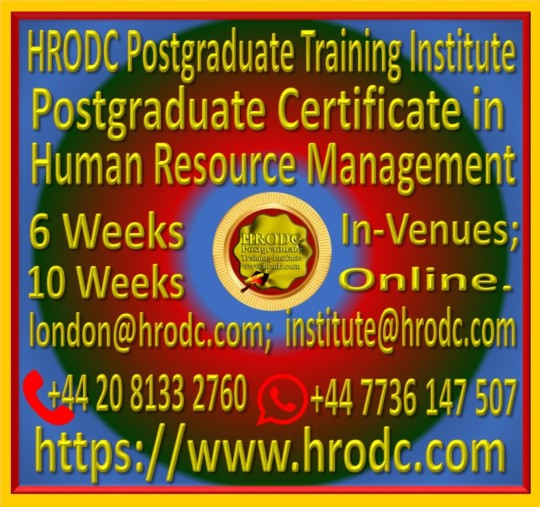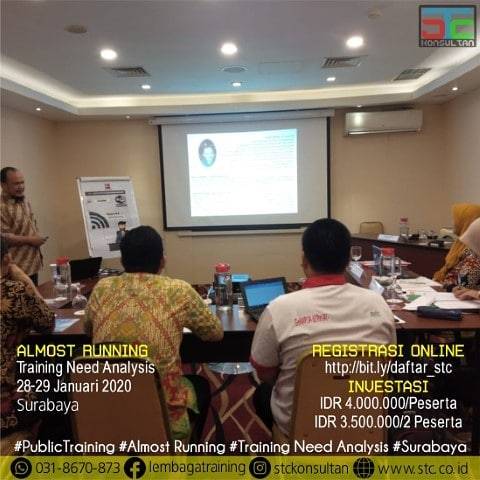#trainingneedsanalysis
Explore tagged Tumblr posts
Text
Training Need Analysis in Human Resource Management (HRM)
Training Need Analysis (TNA) is a critical process within Human Resource Management (HRM) that plays a pivotal role in identifying and addressing the skill gaps and development needs of employees. In the dynamic and ever-evolving landscape of today's workplace, HR professionals recognize the importance of ensuring that employees possess the necessary skills and knowledge to meet organizational goals. This article explores the significance of Training Need Analysis in HRM, its methodologies, and its impact on employee competence and overall organizational success.
The Purpose of Training Need Analysis in HRM:
At the heart of effective HRM lies the goal of aligning the capabilities of the workforce with the strategic objectives of the organization. Training Need Analysis is the systematic process through which HR professionals assess the current skills, competencies, and performance of employees to identify areas that require development. The primary purposes of TNA in HRM include:
Skills Gap Identification:
TNA helps HR professionals pinpoint the gap between the skills employees currently possess and the skills needed to perform their roles effectively. This identification is crucial for designing targeted training programs.
Strategic Alignment:
By understanding the training needs of employees, HRM can align training initiatives with the broader strategic goals of the organization. This ensures that training efforts contribute directly to organizational success.
Resource Optimization:
TNA allows HRM to allocate resources effectively. By focusing on areas with the greatest need, organizations avoid unnecessary spending on irrelevant or redundant training programs.
Performance Improvement:
The ultimate goal of TNA in HRM is to enhance individual and collective employee performance. Addressing specific training needs directly contributes to increased productivity, efficiency, and quality of work.
Employee Engagement:
Offering relevant training opportunities based on TNA results demonstrates HRM's commitment to employee development. This fosters higher levels of engagement, job satisfaction, and loyalty.
Retention of Talent:
Employees are more likely to stay with an organization that invests in their professional development. TNA ensures that employees feel supported in their career growth, contributing to higher retention rates.
Leadership Development:
TNA helps identify potential leaders within the organization. This information is crucial for designing leadership development programs and succession planning, ensuring a pipeline of capable leaders.
Methodologies of Training Need Analysis in HRM:
Several methodologies are employed in TNA to gather data and insights into the training needs of employees. These methodologies can be categorized into various approaches:
Surveys and Questionnaires:
HRM often utilizes surveys and questionnaires to collect feedback from employees. These tools help assess self-perceived competence, identify areas for improvement, and understand employee preferences for learning.
Interviews and Focus Groups:
Direct interactions through interviews and focus groups allow HR professionals to delve deeper into specific training needs. This qualitative approach provides valuable insights into challenges and aspirations.
Performance Appraisals:
Reviewing performance appraisals helps HRM identify areas where employees may be falling short or where additional skills are required. This approach is especially useful for linking training to job-specific requirements.
Skills Assessments and Testing:
Conducting skills assessments and testing allows HRM to objectively evaluate employees' current competencies. This approach is particularly effective in technical or skill-specific domains.
Observations and Job Analysis:
Direct observations of employees in their work environment, coupled with job analysis, provide HRM with a holistic understanding of the skills and knowledge needed for various roles.
Impact of Training Need Analysis on Employee Competence and Organizational Success:
Targeted Development:
TNA ensures that training efforts are targeted, addressing specific areas identified as crucial for individual and team development. This targeted approach leads to more effective and efficient skill enhancement.
Increased Employee Confidence:
Addressing identified training needs enhances employees' confidence in their roles. Confident employees are more likely to take on challenges, contribute ideas, and actively engage in their work.
Enhanced Performance:
The ultimate goal of TNA is to improve performance. As employees acquire new skills and knowledge, their performance levels increase, positively impacting productivity and the quality of outputs.
Strategic Talent Development:
TNA contributes to strategic talent development by identifying high-potential employees and designing development paths for future leadership roles. This ensures the organization has a pool of skilled leaders ready for advancement.
Adaptability to Change:
TNA helps employees acquire skills that make them more adaptable to changes in technology, industry trends, and organizational processes. This adaptability is crucial in today's fast-paced business environment.
Positive Impact on Organizational Culture:
A culture of continuous learning is fostered through TNA. When employees see that the organization invests in their development, it creates a positive and growth-oriented culture.
Return on Investment (ROI):
TNA contributes to a higher return on investment in training initiatives. By ensuring that training programs directly address identified needs, organizations maximize the impact of their training budgets.
Competitive Advantage:
Organizations that regularly conduct Training Needs Analysis gain a competitive advantage by ensuring that their workforce is equipped with the latest skills and knowledge. This advantage is crucial in industries where staying ahead of the curve is paramount.
Conclusion
Training Need Analysis in HRM is a strategic and indispensable process that contributes to the competence of employees and the overall success of the organization. By identifying and addressing specific training needs, HRM ensures that training efforts align with organizational goals, fostering a skilled, engaged, and adaptable workforce.
#trainingneedsanalysis#whatisTNA#whatistrainingneedsanalysis#TNAinHRM#whataretrainingneeds#purposeoftrainingneedsanalysis#trainingneedsanalysismethods#objectivesoftrainingneedsanalysis#trainingneedanalysisprocess#trainingneedanalysisinHRM
0 notes
Text
Featured Postgraduate Diploma; Postgraduate Certificate; and Diploma - Postgraduate – (Short) Courses, by HRODC Postgraduate Training Institute.
We are pleased to highlight ten of our most popular Postgraduate Programmes and Courses. A Postgraduate-Only Institution, we are Verified by, and Registered with, UK’s Department for Education (DfE). We offer Postgraduate Diploma; Postgraduate Certificate; and Diploma - Postgraduate – (Short) Courses, in a variety of Disciplines, In-Venues, Internationally, and Online. The areas of study include, but are not limited to:
#TrainingNeedsAnalysis
#BusinessManagement
#PropertyLaw
#InternationalPetroleumAccounting
#OilandGasAccounting
#HumanResourceManagement
#Travel&ProtocolManagement
#TrainerTraining
#TrainingForTrainers
#OrganisationalDelegation
#DelegatinginOrganizations
Other Postgraduate Programmes and Courses incorporate:
Financial Risk Management;
Events Management;
Accounting;
Finance;
Anti-Dumping;
Anti-Subsidy;
Organizational Design: Structuring;
Employment Law;
Consumer Law;
Legal HR Support;
Client Care;
Research Methods;
Executive Management;
Time Management;
Diversity Management;
Project Management;
Leadership and Leadership Styles;
Business Administration;
Team Development;
Business English Communication; and several others.
#CreditHours
#CreditValues
#AccumulatedCreditHours.
Credit-Hours and Credit-Values
Credit-Hours are the actual amount of time that a lecturer or tutor spends with his or her students or delegates, In-Venues and Online. Each Five-Day In-Venues or Ten-Day Online (3 hours per day) Course consists of 30 Credit-Hours, while a 6-Day In-Venues Course amounts to 36 Credit-Hours. Because Credit-Values are calculated in multiples of 30 Credit-Hours, 60-89 Credit-Hours have a Double-Credit (2 Credits) value, while 90 Credit-Hours earn a Triple-Credit (3 Credits).
Postgraduate Diploma Award
A Postgraduate Diploma Award is achieved with a minimum of 360 Credit-Hours, through continuous study, or an accumulation of Credit-Hours. Its duration is 12 weeks In-Venue, or 20 weeks' Synchronous (Video-Enhanced) Online, Delivery.
Postgraduate Certificate Award
A Postgraduate Certificate might be gained with a minimum of 180 Credit-Hours, through continuous study or Credit-Hours' accumulation. Its duration is 6 Weeks’ Intensive In-Venues, or 10 Weeks’ Video-Enhanced (Synchronous) Online, Tuition.
Postgraduate Short Courses (Diploma Postgraduate Awards)
A delegate who successfully completes a Postgraduate Short Course of 30 or more Credit-Hours, but which is less than 180 Credit-Hours (Postgraduate Certificate), is awarded a Diploma – Postgraduate. These Awards specify both the Credit-Values and Credit-Hours, as are exemplified below:
Diploma – Postgraduate – in Organisational Change Management, Single-Credit, 30 Credit-Hours;
Diploma - Postgraduate - in Trainer Training: Training for Trainers, Double-Credit, 60 Credit-Hours:
Diploma – Postgraduate – in University and Higher Education Administration, Triple-Credit, 90 Credit-Hours;
Diploma – Postgraduate – in Tourism and International Relations, Quad-Credit, 120 Credit-Hours.
Cumulative Postgraduate Certificate and Postgraduate Diploma.
All Postgraduate Short Courses accumulate to a Postgraduate Certificate and a Postgraduate Diploma, on a ‘Pic and Mix’ or Specialist basis. This means that we maintain academic records for each delegate, indicating the courses studied, with their Credit-Value and Credit-Hours, as are indicated above, under ‘Postgraduate Short Course Awards’. The Credit-Hours are aggregated to accumulate to at least 180 and 360 Credit-Hours, for a Postgraduate Certificate and a Postgraduate Diploma, respectively. Each Short Course Award (below a Postgraduate Certificate) indicates both the Credit-Value and Credit-Hours.
Accumulated Postgraduate Certificate and Postgraduate Diploma Award Titles
All Specialist Postgraduate Certificate and Postgraduate Diploma Programmes have predetermined Award Titles. Delegates who do not follow a specialism, for accumulation to a Postgraduate Certificate and Postgraduate Diploma, receive a Generalist, rather than a Specialist, Award. However, a Specialist Award is given to delegates who studied at least seventy percent (70%) of their courses in a specialist grouping. A few examples of the Specialist Awards are:
Postgraduate Diploma in Accounting and Finance;
Postgraduate Certificate in Accounting and Finance;
Postgraduate Diploma in Business Communication;
Postgraduate Certificate in Business Communication;
Postgraduate Diploma in Corporate Governance;
Postgraduate Certificate in Corporate Governance;
Postgraduate Diploma in Costing and Budgeting;
Postgraduate Certificate in Costing and Budgeting;
Postgraduate Diploma in Engineering and Technical Skills;
Postgraduate Certificate in Engineering and Technical Skills;
Postgraduate Diploma in Events Management;
Postgraduate Certificate in Events Management;
Postgraduate Diploma in Health and Safety Management;
Postgraduate Certificate in Health and Safety Management;
Postgraduate Diploma in Human Resource Development;
Postgraduate Certificate in Human Resource Development;
Postgraduate Diploma in Human Resource Management;
Postgraduate Certificate in Human Resource Management;
Postgraduate Diploma in Information and Communications Technology (ICT);
Postgraduate Certificate in Information and Communications Technology (ICT);
Postgraduate Diploma in Leadership Skills;
Postgraduate Certificate in Leadership Skills;
Postgraduate Diploma in Law – International and National;
Postgraduate Certificate in Law – International and National;
Postgraduate Diploma in Logistics and Supply Chain Management;
Postgraduate Certificate in Logistics and Supply Chain Management;
Postgraduate Diploma in Management Skills;
Postgraduate Certificate in Management Skills;
Postgraduate Diploma in International Petroleum - Oil and Gas Operation;
Postgraduate Certificate in International Petroleum - Oil and Gas - Operation;
Postgraduate Diploma in International Petroleum - Oil and Gas - Accounting;
Postgraduate Certificate in International Petroleum - Oil and Gas - Accounting; Postgraduate Diploma in Politics and Economic Development;
Postgraduate Certificate in Politics and Economic Development;
Postgraduate Diploma in Procurement Management;
Postgraduate Certificate in Procurement Management;
Postgraduate Diploma in Project Management;
Postgraduate Certificate in Project Management;
Postgraduate Diploma in Public Administration;
Postgraduate Certificate in Public Administration;
Postgraduate Diploma in Quality Management;
Postgraduate Certificate in Quality Management;
Postgraduate Diploma in Real Estate Management;
Postgraduate Certificate in Real Estate Management;
Postgraduate Diploma in Research Methods and Report Writing;
Postgraduate Certificate in Research Methods and Report Writing;
Postgraduate Programmes and Course Deliveries are both Online and In-Venues. Our Scheduled Venues are:
London, UK;
Dubai, United Arab Emirates (UAE);
Kuala Lumpur, Malaysia;
Amsterdam, The Netherlands;
Jakarta, Indonesia;
Brussels, Belgium;
Paris, France;
Bangkok, Thailand;
Hanoi, Vietnam;
Bucharest, Romania;
Durban, South Africa; and
Manila, Philippines.
Requested Venues and In-House Deliveries might be in:
Abuja, Accra, Algiers, Amman, Antananarivo, Asmara, Astana, Athens, Baku, Bangui, Banjul, Beijing, Belfast, Birmingham, Bissau, Bogotá, Brasilia, Bridgetown, Brussels, Bucharest, Buenos Aires, Cairo, Canberra, Caracas, Chisinau, Colombo, Conakry, Dakar, Dhaka,
Dodoma, Doha, Dublin, Freetown, Gaborone, Georgetown, Guatemala City, Islamabad, Jeddah, Juba, Kampala, Kathmandu, Khartoum, Kinshasa, Kuwait City, Lagos, Libreville, Lilongwe, Lima, Lomé, Luanda, Lusaka, Madrid, Malabo, Male, Manama, Maputo, Maseru, Mbabane, Mexico City, Mogadishu, Monaco, Muscat, Nairobi, Nassau, N'djamena, New Delhi, New York, Niamey, Nicosia, Nouakchott, Ottawa, Ouagadougou, Palikir, Paramaribo, Phnom Penh, Port Louis, Praia, Quito, Rabat, Riga, Roseau, Saint, John's, San, Jose, San Salvador, Santiago, Seoul, Singapore, Tirana, Tokyo,
Toronto, Tripoli, Tunis, Ulaanbaatar, Vaduz, Valletta, Victoria, Vienna,
Vientiane, Windhoek, Wolverhampton, Yamoussoukro, Yaoundé.
Our contact details are:
+44 7736 147 507;
+44 7586 676 208
+44 1902 763 607;
+44 20 8133 2760;
Skype: hrodcltdpgti4












0 notes
Video
tumblr
Training needs analysis is a process of identifying which kind of training is required and provides the details related to the training implementation in order to improve performance. For more information visit https://www.hrhelpboard.com/training-development/training-needs-analysis.htm
#trainingneedsanalysis#whatistrainingneedsanalysis#trainingneedanalysisprocess#trainingneedanalysisinHRM#whataretrainingneeds
0 notes
Link
It’s time to reevaluate Training Needs Analysis (TNA)! Instead of targeting just learning outcomes, leverage the TNA phase to help you determine the actual business impact. This article explains how you can leverage the TNA phase to identify measures to determine the business impact of training.
0 notes
Photo

Hubungi Kami : http://bit.ly/cs_stc | Almost Running Training Need Analysis 28-29 Januari 2019 di Surabaya #stckonsultan #publictraining #needanalysis #trainingneedanalysis #needsanalysis #trainingneedsanalysis #publictraining #trainingpublic #publictraininghrm #traininghrd #trainingsdm #trainingsurabaya #surabayatraining #companytrainingsurabaya #trainingdisurabaya #infotrainingsurabaya #trainingsoftskillsurabaya (at PT Surabaya Teknika Cipta Konsultan) https://www.instagram.com/p/B7TNHGagkJV/?igshid=1u1lxoyx7248x
#stckonsultan#publictraining#needanalysis#trainingneedanalysis#needsanalysis#trainingneedsanalysis#trainingpublic#publictraininghrm#traininghrd#trainingsdm#trainingsurabaya#surabayatraining#companytrainingsurabaya#trainingdisurabaya#infotrainingsurabaya#trainingsoftskillsurabaya
0 notes
Link
Employee training is more critical than ever for organizations to remain competitive.However, first things first – to figure out how to get where you want to go, you need to figure out where you are. This means you need to identify performance and skill gaps with a thorough employee training needs analysis.
0 notes
Photo

My second training with Mrs. Glinoga Phd... #beforeandafter #training #HRHead #trainingneedsanalysis #additionalknowledge
0 notes
Photo

Our Microsoft Excel training needs analysis quiz takes just 90 seconds and it will give you a good idea of whether you need a beginners, intermediate or advanced course, and even whether you might benefit more from a blended course. Its completely anonymous and without obligation and doesn't require you to enter any personal data and there is no server-side processing of your information.
https://www.foursquaretraining.co.uk/training_course_pages/excel_learning_needs_assessment_beg_int.php
#exceltrainingneeds #tna #trainingneedsanalysis #excelcourselevels #excelskillsanalysis #foursquaretraining #exceltna
0 notes